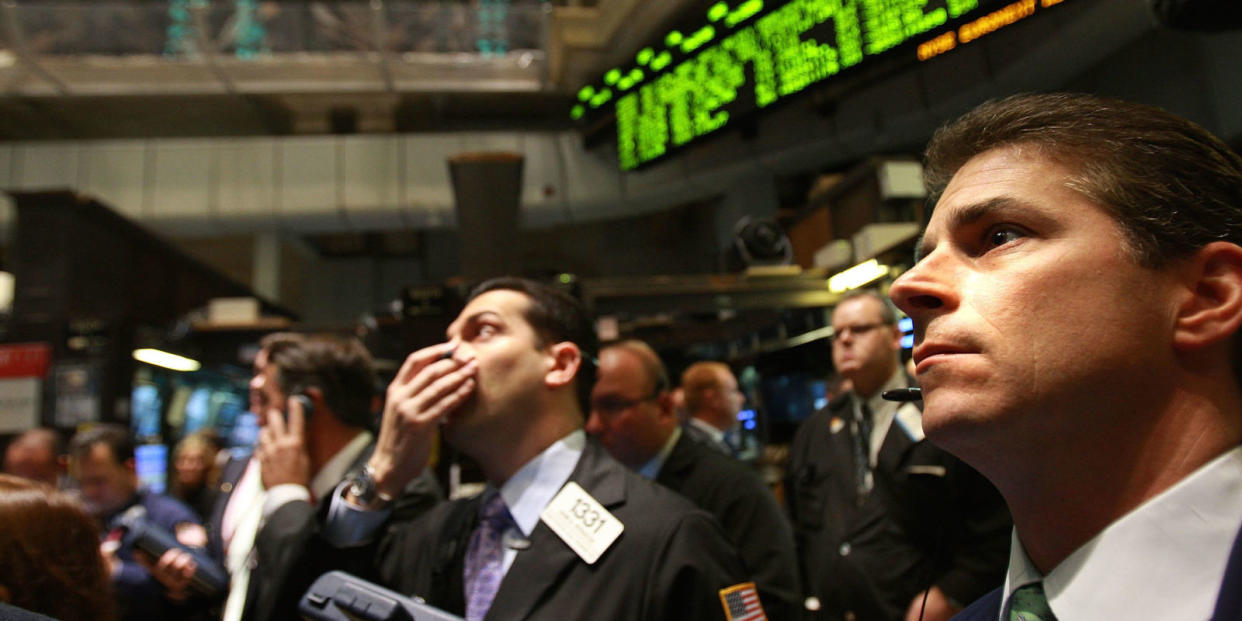We Will See a Financial Meltdown Under President Trump

Sherlock Holmes once called Dr. Watson "the stormy petrel of crime," for which, showing remarkable forbearance, Watson declined to knock Holmes senseless with his violin. Anyway, for going on a decade now, Dave Dayen has been the stormy petrel of financial crime, so when he says something is a critical moment, then that something is a critical moment. In The Fiscal Times, Dayen points out that there will be a vote this week in the Congress-yes, they're still up to mischief at the moment-that will say a lot about how willing the Democratic congressional caucus is going to be to fight the deregulation avalanche that's coming down the mountain.
As early as Wednesday, the House will take up H.R. 6392, the Systemic Risk Designation Improvement Act. (Ed. Note: "The cheaper the crook, the gaudier the patter." - S. Spade.) This bill would lift mandatory Dodd-Frank regulatory supervision for all banks with more than $50 billion in assets, meaning those financial giants would no longer be subject to blanket requirements regarding capital and leverage, public disclosures and the production of "living wills" to map out how to unwind during a crisis… Eight so-called "global systemically important banks" would be automatically subject to the standards: Citigroup, JPMorgan Chase, Bank of America, Goldman Sachs, Wells Fargo, Bank of New York Mellon, Morgan Stanley and State Street Bank. So this bill, authored by Missouri Republican Blaine Leutkemeyer, isn't about protecting the biggest banks, but the relatively smaller regional players - firms like PNC Bank, Capital One and SunTrust. An estimated 28 institutions would be affected. Don't think that just because a nice-sounding "regional bank" isn't Wells Fargo, this bill makes some sense. Given the extreme interconnectedness of the financial system, relaxing policing of banks with about $4.5 trillion in assets severely hampers overall stability. After all, while the 2008 financial crisis is remembered for the collapse of Lehman Brothers and Bear Stearns, regional banks like Washington Mutual and Wachovia also came crashing down. You can see with this bill's framework how financial regulation in the Trump era will be relaxed, not by outright repeal but through deliberate atrophy.
(This strategy is another indication that, for all his eccentricity, the president-elect has a great deal of typical modern conservative Republican floating around in his intellectual stone soup. This has been the strategy ever since the Reagan Administration. Take an oversight agency. Staff it with people who hate it. Let them ignore the rules until the rules die of thirst. Take this as proof that "government" always fails. Profit!)
[contentlinks align="center" textonly="false" numbered="false" headline="Related%20Story" customtitles="All%20of%20Trump's%20Problems%20Summed%20Up%20in%20One%20Word" customimages="" content="article.51027"]
The failure to truly hold accountable the knaves and thieves who crashed the world economy and then made off with what was left is going to be something that historians of the Obama Administration are going to have to reckon with for some time. There is no evidence at hand that, even after we all helped bail their crooked asses out, they learned anything, or that they were in any way sorry for all the damage they did, or that they would hesitate for a moment from doing it again. This is one of those tests by which we can judge if the Democrats learned anything as well.
For example, a couple of weeks ago, writing in The New York Times, Gretchen Morgenson posited the case that general anger at letting the crooks off lightly was a seriously overlooked element in the burn-it-all-down rage driving the Trump vote.
Recall that more than 800 bankers went to jail after the savings and loan crisis of the 1980s. And that mess wreaked nowhere near the devastation that the housing debacle did on the overall United States economy. Embarrassed, perhaps, by their passivity, Justice Department officials recently pledged to take a more aggressive approach to white-collar crime. But the memo issued last September by Sally Quillian Yates, deputy attorney general, outlining new ways the department would hold individuals to account, has not translated into results. These kinds of cases, of course, take time to mount. Still, data supplied by the Justice Department and compiled by Syracuse University shows that white-collar crime prosecutions are actually down significantly in 2016 from previous years. The Transactional Records Access Clearinghouse indicates that through August - the first 11 months of the government's most recent fiscal year - prosecutions of all types were down almost 18 percent from five years ago.
There really is no excuse for this, and there's no effective argument against Morgenson's position. You didn't have to be Simon Johnson or Paul Krugman to realize that somebody, somewhere was getting away with murder in the aftermath of a nearly fatal fiscal catastrophe. You could be somebody who woke up one morning and realized that your pension fund had been decimated, or that the teaser rate on your mortgage had run out and now you somehow owed a half-a-million on that two-bedroom dream house in the outer suburbs. Hell, as Morgenson points out later in her story, hardly anyone even got fired for doing all this damage.
Politically, of course, this was moronic.
It was the engine behind the distrust of Hillary Rodham Clinton's relationship to Wall Street that caused her so many problems, especially in the primaries. This kind of blind, furious rage at the "rigged" system was so inchoate that it lined up behind a guy whose entire career was built on low-rent versions of these grand and fraudulent schemes. Now, even the shreds of regulation passed after the collapse are under threat. This can't happen again, but it will.
Click here to respond to this post on the official Esquire Politics Facebook page.
You Might Also Like

